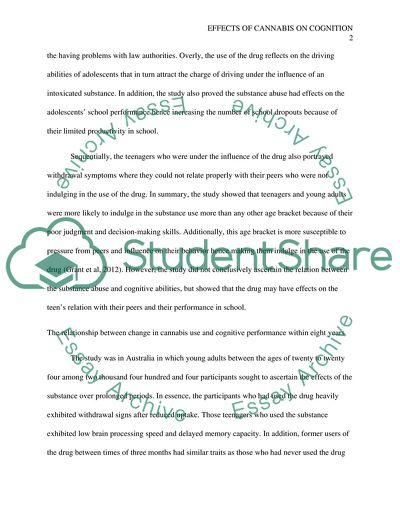Cite this document
(“Effects of Cannabis on Cognition Research Paper - 2”, n.d.)
Effects of Cannabis on Cognition Research Paper - 2. Retrieved from https://studentshare.org/medical-science/1609873-effects-of-cannabis-on-cognition
Effects of Cannabis on Cognition Research Paper - 2. Retrieved from https://studentshare.org/medical-science/1609873-effects-of-cannabis-on-cognition
(Effects of Cannabis on Cognition Research Paper - 2)
Effects of Cannabis on Cognition Research Paper - 2. https://studentshare.org/medical-science/1609873-effects-of-cannabis-on-cognition.
Effects of Cannabis on Cognition Research Paper - 2. https://studentshare.org/medical-science/1609873-effects-of-cannabis-on-cognition.
“Effects of Cannabis on Cognition Research Paper - 2”, n.d. https://studentshare.org/medical-science/1609873-effects-of-cannabis-on-cognition.


